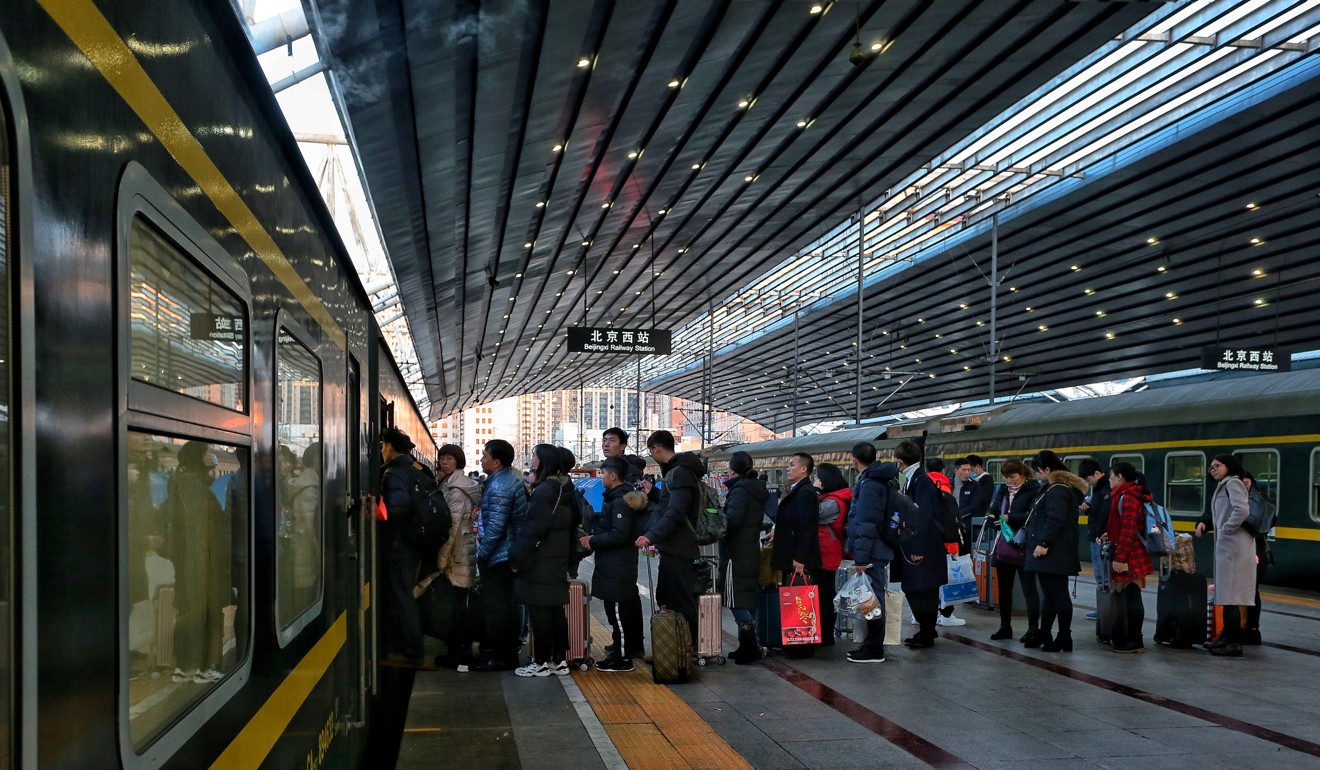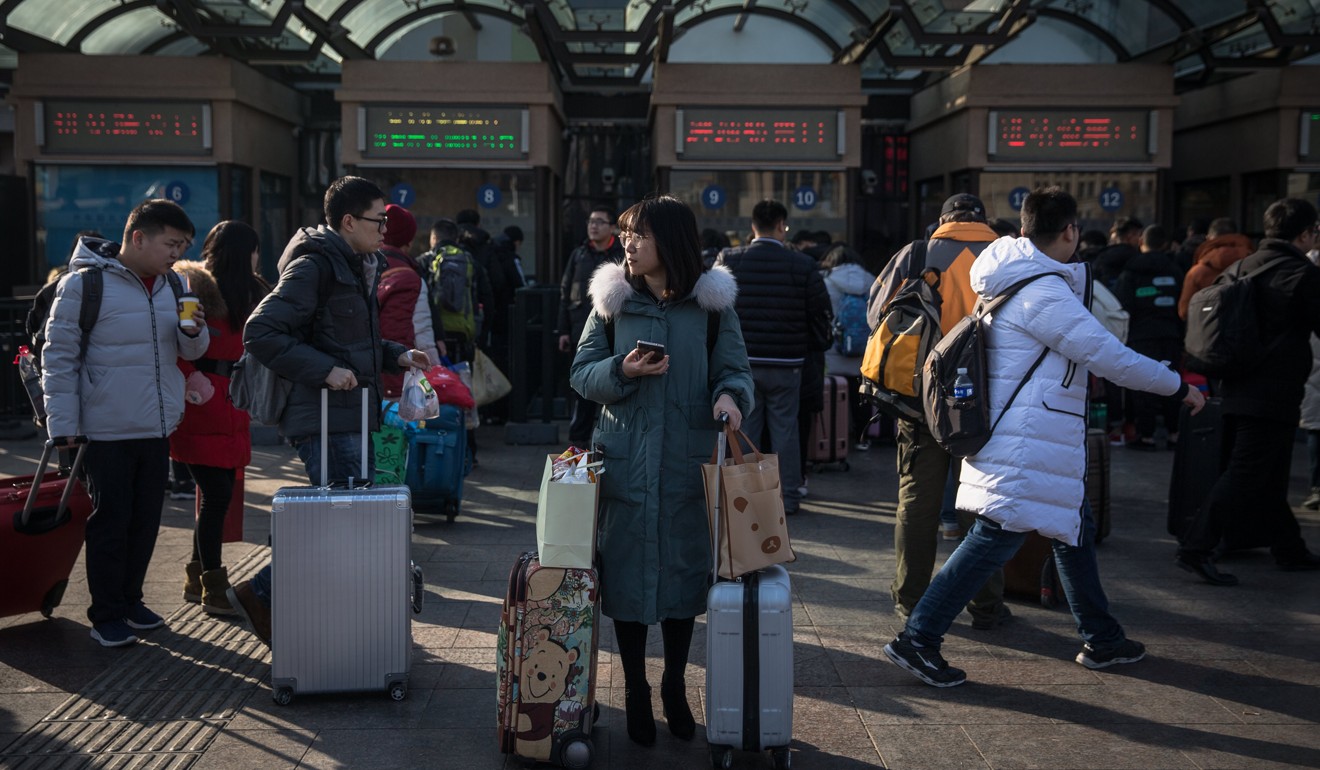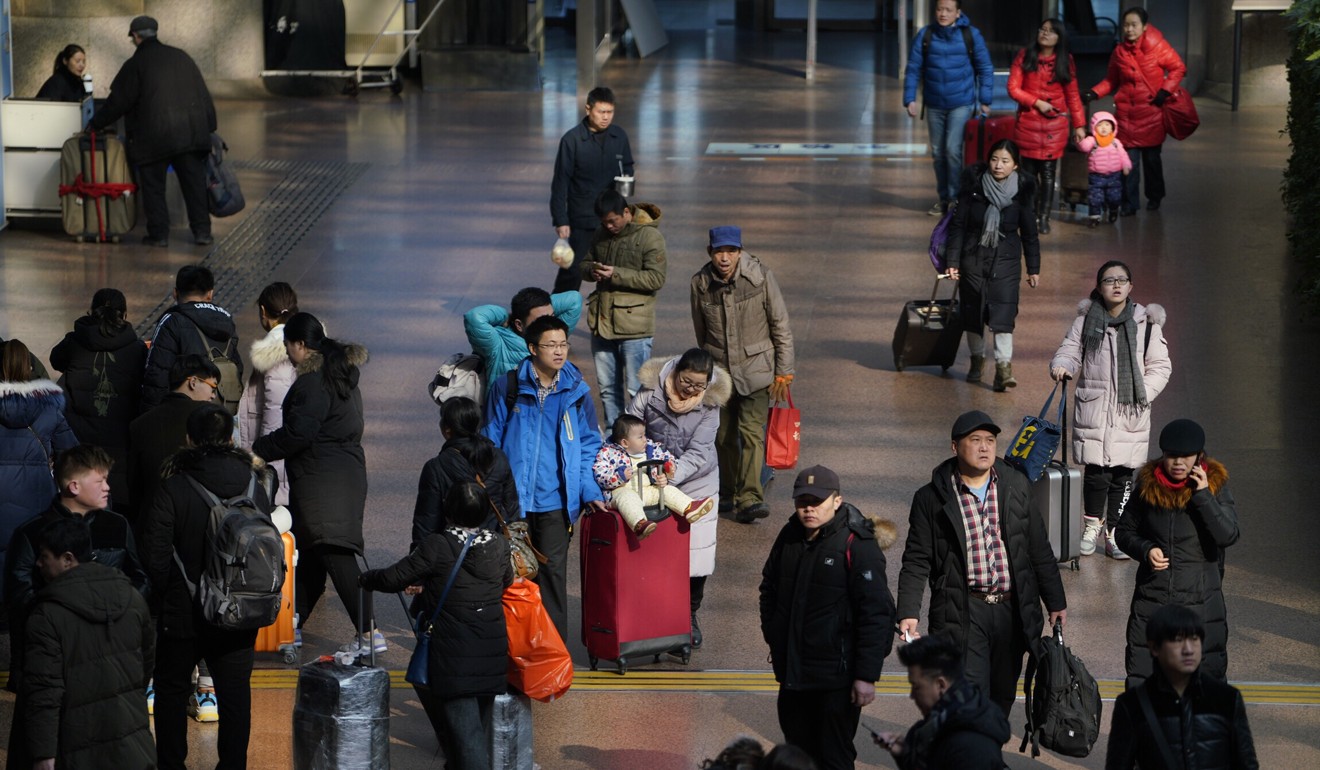
The Chinese office workers who will skip travel crush, toil through the Lunar New Year holiday
For many white-collar businesspeople, China’s longest holiday will be just another stretch of working days
Peter Zhao had watched his workmates leave the office, heading for hometowns and Lunar New Year celebrations with family.
He was staying put.
“I’m busy writing business proposals for an important client,” Zhao, who manages a consulting agency in Beijing, told the South China Morning Post.
“Many colleagues have already left for home. However, since I’m new to this company and also the team leader, I hope I can use the long holiday to perfect my pitches.”
Zhao, a native of Jilin, a northeastern province adjoining North Korea, was among the multitude of white-collar workers in China’s megacities for whom the break will be just be another stretch of working days.

Most employees in China are to get at least a seven-day holiday, including three legal work holidays from Thursday to Saturday, and up to four common local holidays from Sunday through Wednesday.
Days before the eve of Lunar New Year, Beijing’s business district already was moving into holiday mode.
On most days, this city of 21 million is dense, busy and filled with people in a rush. But by Wednesday, the capital’s normally bustling central business district had fallen quiet.
Zhao said he had volunteered to work through the break, even though China’s longest holiday is regarded as China’s most important time for family gatherings.
Another member of China’s unsung middle class workforce was plying her trade at Beijing West Railway Station, where an average of 220,000 people per day were leaving the capital to head for Lunar New Year family reunions.
As travellers hurried by, Wang Jingyao, a worker with the Beijing Red Cross Blood Centre, attempted to tell them of the importance of giving blood.

Workers in her organisation are no stranger to holiday toil.
“Except the Lunar New Year Eve, our blood collection buses scattered throughout the city will work as normal in the rest of the holiday,” Wang, 38, said. “It has been that way since I started working here in 2005.”
“It would be much busier for us during holiday, but that is also a good opportunity to publicise the knowledge of blood, humanitarianism and call for more donations,” said Wang, who in past years has invited her parents who live in Changchun city, Jilin province, to stay with her in Beijing over Lunar New Year.
“The family’s understanding and support are very important to me,” the worker said.
At China.org.cn, a government-run news website, cultural editor Huang Shan planned to work through part of the break.

“We need at least two people each day in our section to keep the operations rolling and ensure no major stories are missed,” said Huang, 38, who treats working overtime as part of the job, with no exception being made even for Lunar New Year.
“Our holiday duty is often rotated between colleagues,” she said, adding that staff manage to set the holiday work schedule through “friendly negotiations” with each other.
Huang said she plans to see her parents in Fuzhou city, in southeast China’s Fujian province, before returning to Beijing in the middle of the holiday to go back to work.
“I don’t feel lonely when staying in the largely empty newsroom or Beijing,” she said.
“It actually becomes more convenient because there are no more traffic problems and crowds during the holiday.”

